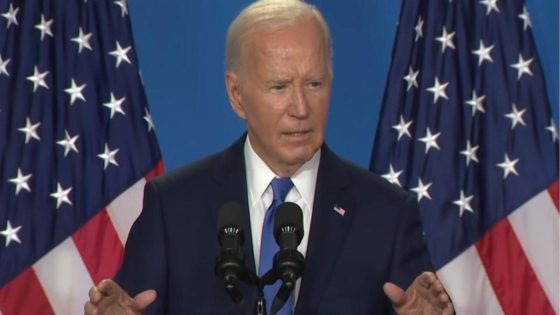Miller Moss could see, as he scanned the scene on a critical red zone third down last Saturday, that a big hit was probably in his future. It was simple math. USC had an extra receiver out wide. Wisconsin had six in the box. Somebody was going to run free. And he would probably pay the price.
The USC quarterback checked with his center, Jonah Monheim, where protection would slide. That way he’d know where the free runner was coming from. But when he snapped the ball, three Badger blitzers broke loose.
Somehow, Moss still managed to sling a pass off his back foot before all three came crashing down on him. And somehow, his pass miraculously found wideout Duce Robinson in traffic for the go-ahead score.
Read more: USC linebacker Raesjon Davis to redshirt this season
On the next drive, Moss dove into contact of his own accord as he crossed into the end zone on a quarterback keeper. After a brief trip to the medical tent, teammates marveled about the guts of their quarterback.
“Show me a tough team,” coach Lincoln Riley said after the game, “and I’ll show you a tough quarterback.”
But as the hits pile up, so do the questions about how USC plans to protect Moss going forward. A trip to face a Minnesota pass defense that has eight interceptions and yielded fewer than 97 yards per game this season probably won’t make that task any easier, as Moss finds himself with fewer windows to throw into. Nor will a looming matchup next week with Penn State’s fearsome front.
Riley would, of course, prefer his starting quarterback stay upright. But he’s not all that concerned yet about the hits Moss is already accumulating.
“You’d love to leave any game with a quarterback not taking any hits, but that’s not always reality,” Riley said this week. “That’s part of playing the position. We’re not trying to advocate for it, but certainly you can’t always completely avoid it.”


Better protection might help mitigate it, at least. On a per-game basis, USC’s quarterback has been under duress more than any other Big Ten passer. He’s been sacked or hit, on average, 5.5 times per game (22 total) and under pressure on 12.25 dropbacks (49 total). Both rates rank highest in the conference, according to Pro Football Focus.
His blindside has been especially vulnerable. Redshirt freshman Elijah Paige has allowed the second most pressures of any Big Ten lineman, despite only playing in 3½ games as USC’s left tackle.
Riley acknowledged the “growing pains” his left tackle is going through. But he expressed confidence that Paige would be better going forward.
“It’s just going to be part of the kid’s climb,” Riley said of Paige. “The key is for him — he can’t let any adversity he’s faced, he can’t let it defeat him, he can’t let it discourage him. He’s just got to continue to learn and grow and bank those reps and bank those experiences and keep going. He does that, he’s going to be a phenomenal player. And he’s given me no reason to think he’s going to do anything but that.”
It doesn’t get much easier from here, with the likes of Nebraska, Penn State, Washington and Notre Dame, all top-25 pass rushes, still ahead.
But Minnesota has struggled, for the most part, to turn pressure into sacks this season. The Gophers have averaged 1.8 sacks per game through five games, good for 14th in the Big Ten.
USC, in spite of its progress on the defensive end, is one of the few in the conference who have been less efficient at racking up sacks, with just five in four games this season. But defensive coordinator D’Anton Lynn, whose defense at UCLA totaled 43 sacks last season, said he’s still seen his front affecting the quarterback in other ways.
“It doesn’t have to be just sacks,” Lynn said. “It can be taking him off of his spot, compressing the pocket. So it’s something we need to get better at. But I think we’re going in the right direction.”
Being without linebacker Eric Gentry, who didn’t practice this week because of an undisclosed injury, would be a blow to those efforts. Gentry is the only USC defender with multiple sacks and ranks second on the team in pressures, with six in just 24 pass-rush snaps, per PFF.
There should be more opportunities to get that pass rush going against the Gophers, who throw a bit more than USC’s previous two Big Ten opponents. New Minnesota quarterback Max Brosmer has been efficient in five starts, but the Gophers haven’t done much to create big plays with his arm this season.
“The ball is definitely going to be in the air some,” Riley said. “This guy, he’s a really good quarterback. He’s smart. Decisive with the football. You can see he’s got a great feel for what they’re doing offensively. And you can tell, like, it really fits him. He just seems very comfortable. I think the obvious thing for us is we’ve got to do things to make him uncomfortable.”
This story originally appeared in Los Angeles Times.
Source Agencies


